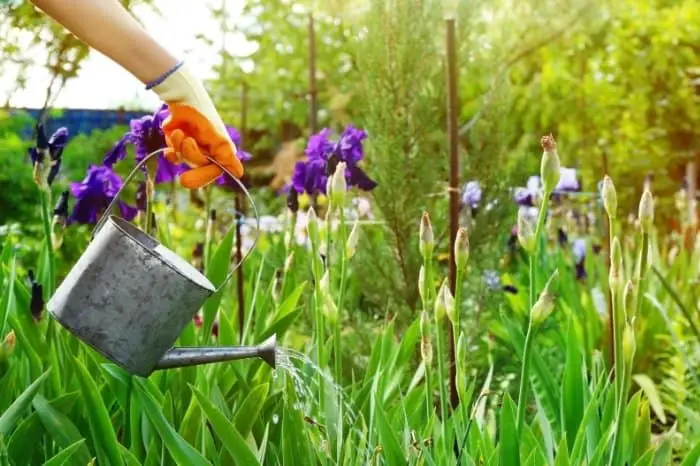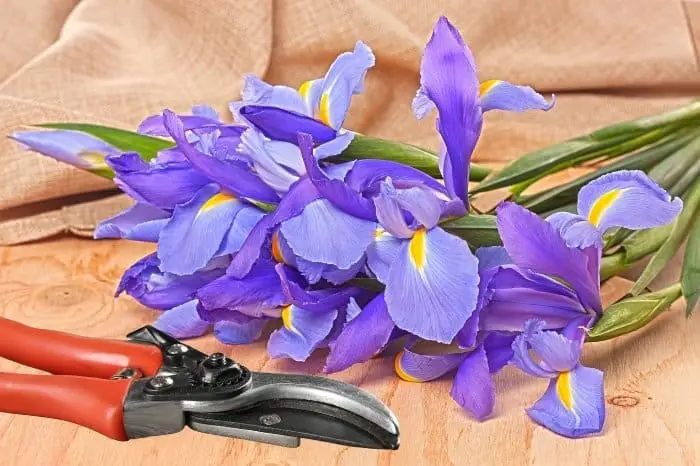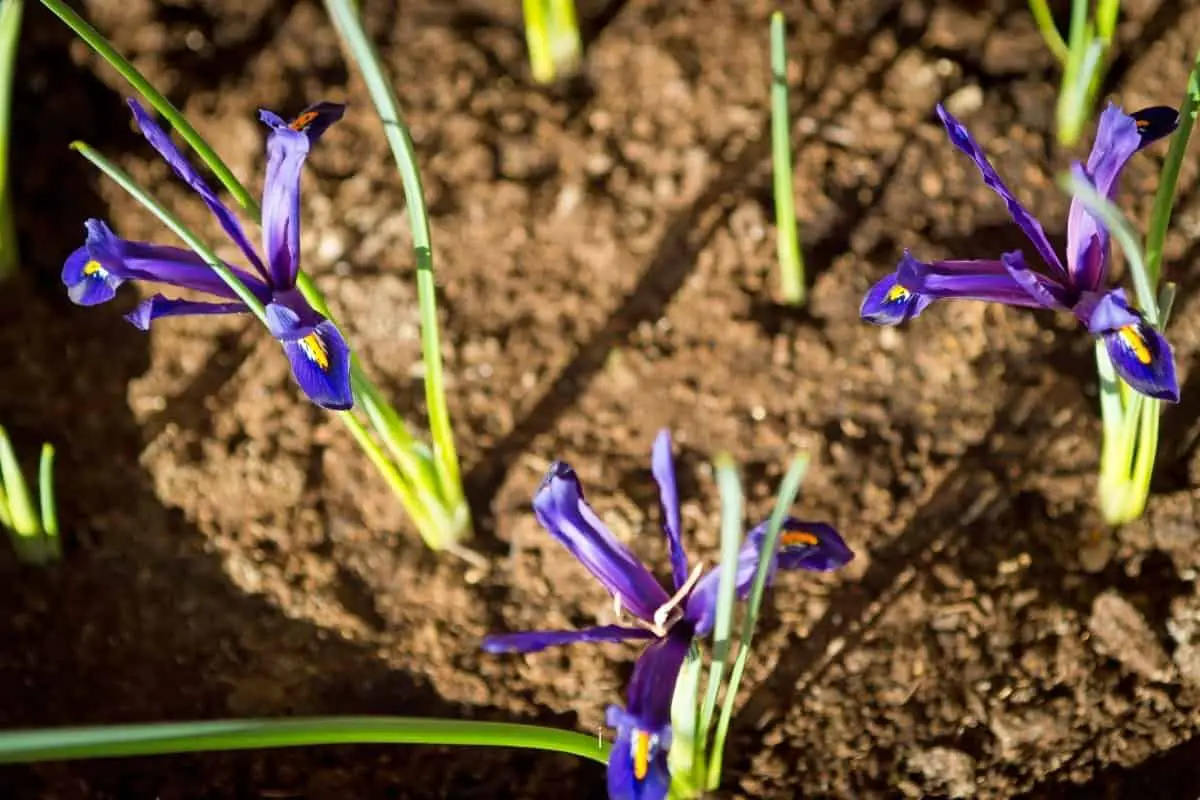Last Updated on January 23, 2022 by Fabiola L.
Irises belong to some of the most popular plants in the world, with many wondering when should you plant iris bulbs. You’ll be happy to learn that planting these plants isn’t difficult at all! In this article, we’ll be taking a closer look at irises, learning how to plant and care for them!
What Is The Best Time To Plant Iris Bulbs?
Most expert gardeners agree that it’s best to plant irises late in the summer. The reason for this primarily resides in night temperatures – you don’t want them to drop below 40 degrees Fahrenheit! Because of this, they can grow overnight (more or less), and they’ll become strong enough to make it through the coming winter. You can also plant them in early autumn, it should make almost no difference.
If you’re wondering when to plant iris bulbs in zone 5, know that the Dutch iris and the Siberian iris can take colder temperatures much better than the Bearded iris! You should also plant them in early autumn!
Van Zyverden Dutch Iris Mixed Set of 25 Bulbs
Some gardeners wonder can you plant iris bulbs in the spring. You can plant your irises indoors whenever you feel like it, especially if you got them in a container! You can do the same if you’ll plant them outside, but it’d be best to wait until late summer.
Read more about Are Geraniums Deer Resistant Or Do They Eat Them?
How To Plant Iris Bulbs?
There are a few things to keep in mind before you ever plant these bulbs. Firstly, know that irises need a lot of sun to realize their full potential!
Choosing A Spot
They won’t bloom at all if they don’t get enough light every day, so it’s important that you find a sunny spot for them. Some irises even need a bed of their own, as they can’t get enough sun because other plants create a shade!
Irises like soil that’s slightly acidic, but they can also grow well in neutral soil. Something that’s much more important about the soil is drainage! These plants require good drainage, and that includes the winter, as well. Even though colder months are coming, an iris won’t tolerate wet and soggy soil.
Planting Iris Bulbs
You can plant your Bearded irises either in open soil or in pots. If you’re planting it outside, you should plant each bulb about a foot apart! Point the bulb upwards. The rules are a little bit different when it comes to the netter iris and the orchid iris. These species can be planted about 4 inches deep. Both of these species have great results when they’re grown in pots! You can still plant them about 4 inches deep in pots!
Caring For Your Irises
Fertilization, lighting, watering, and pruning are the most important elements of care. There are also a few other things that you have to keep in mind when it comes to caring for your iris.
Fertilization
Experts recommend that irises be fertilized in early spring. You should use an all-purpose fertilizer, but make sure that you don’t use a fertilizer that’s high in nitrogen. This might cause rot! It’s also smart to add a thick layer of manure and other mulch, but it’s important to avoid direct contact with a rhizome that’s established.
This might cause rot.
Rhizomes are a bit difficult to work with because they need to stay above ground to grow. However, they’re vulnerable above ground. Because of this, many gardeners prefer bulbs over rhizomes!
Watering
Put simply, you’ll cause root rot if you overwater your irises. Most plants can develop root rot for the same reason, so you have to be careful with this. It’s best to water regularly, especially during warmer months. If you live in a drought-prone area, know that you’ll need to keep a tight schedule if you want your irises to make it through the season!

Lighting
As we already mentioned – irises need a lot of light. This is why it’s best to plant these plants individually if you must. If other plants outgrow them and cast a shadow over them, irises will never grow to their full potential. This is one of the primary reasons why so many gardeners prefer keeping their irises in containers!
Check Out Do Cyclamen Plants Come Back Every Year?
Pruning
It’s best to cut the flower stems as close to their base as possible once they’re done with blooming. However, you should leave the leaves alone! This way, the plant will concentrate on collecting energy instead of growing flowers, and this will ensure that they make it through the winter.
While we’re on the topic of making it through the winter – it’s best to cover the developed rhizomes with two inches of sand and some mulch. This will ensure that the plant has at least some protection during the colder months.
It’s also best to cut the foliage off once harder frost starts appearing. Borer eggs can easily develop if you don’t do this!
Once again, we have a great example of why many gardeners prefer to keep their irises in containers! Once winter comes, you can simply take your irises inside – they’ll survive the winter if they don’t have to stick it out through colder temperatures. Planting and replanting your irises before and after every winter can get annoying!

Irises aren’t prone to many illnesses. They’re even deer resistant, so you don’t have to worry about pests either.
However, it’s possible for an iris to develop brown spots on its leaves. This is usually a fungal infection and it’s best to simply remove all the leaves with these spots.
Conclusion
It’s best to plant your irises in late summer or early autumn. This way, they have plenty of time to get ready for winter, which is a difficult time for any plant. You should plant your irises in soil with good drainage and neutral to slightly acidic pH.
Irises require a lot of light and careful watering, as they can’t stand overwatering. You should also mind fertilizing them at least once a year and deadhead your plant once the blooming season has finished.



